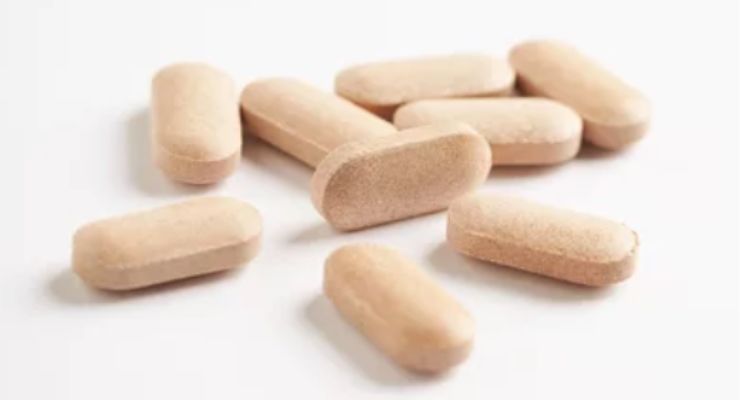03.20.24
Supplementation with SAMe (S-adenosylmethionine), an endogenous compound involved in hormone production, may hold promise as an adjuvant therapy in patients with depression, according to 2024 findings from two independent research groups in a systematic review and a meta-analysis.
Researchers writing in General Hospital Psychiatry conducted a meta-analysis of 14 trials, representing 1,522 subjects, examining the evidence concerning the efficacy of SAMe as a monotherapy or in combination with antidepressants. Doses ranged from 200 to 3,200 mg per day, for durations ranging from 2 to 12 weeks. While SAMe may provide relief of depression symptoms similar to imipramine or escitalopram, two antidepressant drugs, results should be treated with caution due to the variability in doses used and treatment durations, the authors concluded.
A second review and meta-analysis, published in Progress in Neuropsychopharmacology and Biological Psychiatry, examined 23 trials with a total of 2,183 participants comparing SAMe to either a placebo or an antidepressant, with SAMe doses ranging from 45 to 3,200 mg.
Gnosis by Lesaffre, manufacturer of a branded SAMe ingredient called Adonat, noted that depression impacts nearly 280 million people worldwide, per WHO estimates, and, despite the increased availability of antidepressants, many with major depressive disorder (MDD) still have symptoms as a result of partial or no response to antidepressant treatment.
Several studies have found that people with MDD tend to have lower levels of SAMe in their cerebrospinal fluid, and administration of SAMe increases its concentrations in cerebrospinal fluid, indicating its ability to cross the blood-brain barrier. SAMe plays a role in biochemical mechanisms that are associated with depression, regulating components of neurotransmission related to MDD.
These findings should be considered by the healthcare industry and patients alike, Gnosis reported and should be considered in how healthcare providers approach depression.
“Exploring new natural solutions is important for enhancing mental health care,” says Jean-François Jeanne, substantiation and applications manager at Gnosis by Lesaffre. “In the realm of depression management, where conventional approaches encounter obstacles such as treatment discontinuation and low success rates, there is a growing acknowledgment of the significance of exploring alternatives to overcome challenges with traditional methods.
“We are very happy with the findings presented in these meta-analyses. It is gratifying to see the scientific community taking into account SAMe’s potential for maintaining health and improving quality of life.”
Researchers writing in General Hospital Psychiatry conducted a meta-analysis of 14 trials, representing 1,522 subjects, examining the evidence concerning the efficacy of SAMe as a monotherapy or in combination with antidepressants. Doses ranged from 200 to 3,200 mg per day, for durations ranging from 2 to 12 weeks. While SAMe may provide relief of depression symptoms similar to imipramine or escitalopram, two antidepressant drugs, results should be treated with caution due to the variability in doses used and treatment durations, the authors concluded.
A second review and meta-analysis, published in Progress in Neuropsychopharmacology and Biological Psychiatry, examined 23 trials with a total of 2,183 participants comparing SAMe to either a placebo or an antidepressant, with SAMe doses ranging from 45 to 3,200 mg.
Gnosis by Lesaffre, manufacturer of a branded SAMe ingredient called Adonat, noted that depression impacts nearly 280 million people worldwide, per WHO estimates, and, despite the increased availability of antidepressants, many with major depressive disorder (MDD) still have symptoms as a result of partial or no response to antidepressant treatment.
Several studies have found that people with MDD tend to have lower levels of SAMe in their cerebrospinal fluid, and administration of SAMe increases its concentrations in cerebrospinal fluid, indicating its ability to cross the blood-brain barrier. SAMe plays a role in biochemical mechanisms that are associated with depression, regulating components of neurotransmission related to MDD.
These findings should be considered by the healthcare industry and patients alike, Gnosis reported and should be considered in how healthcare providers approach depression.
“Exploring new natural solutions is important for enhancing mental health care,” says Jean-François Jeanne, substantiation and applications manager at Gnosis by Lesaffre. “In the realm of depression management, where conventional approaches encounter obstacles such as treatment discontinuation and low success rates, there is a growing acknowledgment of the significance of exploring alternatives to overcome challenges with traditional methods.
“We are very happy with the findings presented in these meta-analyses. It is gratifying to see the scientific community taking into account SAMe’s potential for maintaining health and improving quality of life.”




























